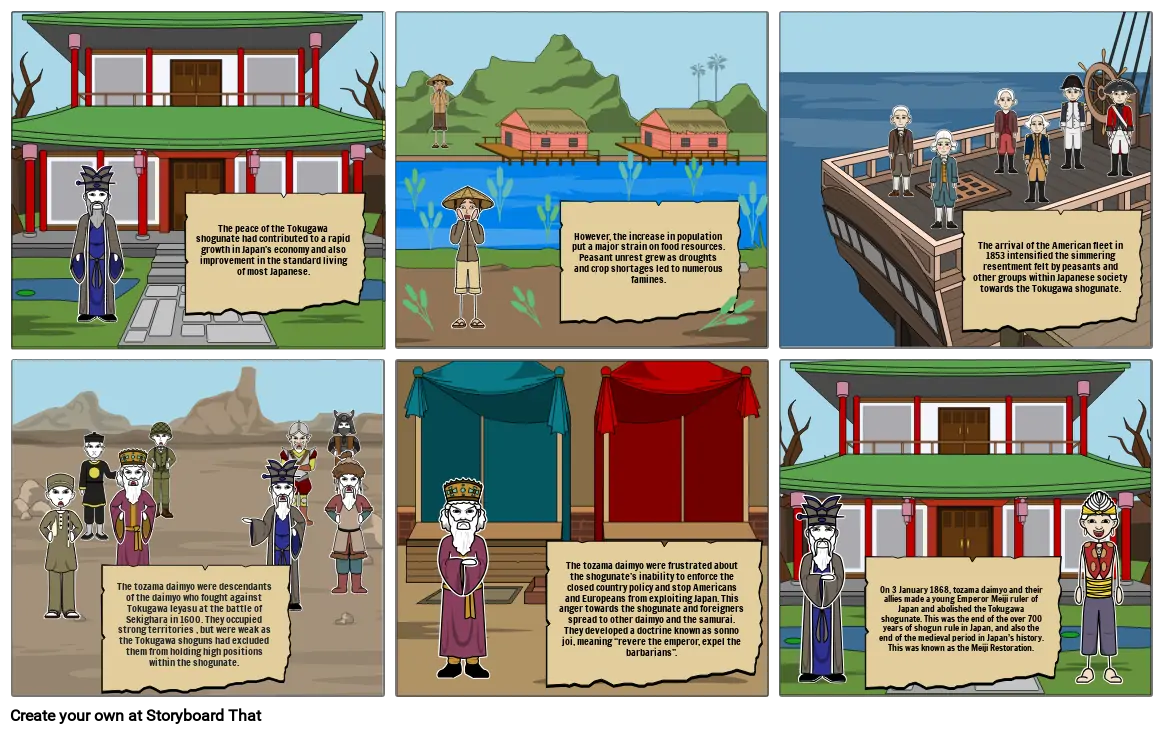Fall of the Tokugawa Shogunate

Storyboard Text
- Skluzavka: 1
- The peace of the Tokugawa shogunate had contributed to a rapid growth in Japan’s economy and also improvement in the standard living of most Japanese.
- Skluzavka: 2
- However, the increase in population put a major strain on food resources. Peasant unrest grew as droughts and crop shortages led to numerous famines.
- Skluzavka: 3
- The arrival of the American fleet in 1853 intensified the simmering resentment felt by peasants and other groups within Japanese society towards the Tokugawa shogunate.
- Skluzavka: 4
- The tozama daimyo were descendants of the daimyo who fought against Tokugawa Ieyasu at the battle of Sekighara in 1600. They occupied strong territories , but were weak as the Tokugawa shoguns had excluded them from holding high positions within the shogunate.
- Skluzavka: 5
- The tozama daimyo were frustrated about the shogunate’s inability to enforce the closed country policy and stop Americans and Europeans from exploiting Japan. This anger towards the shogunate and foreigners spread to other daimyo and the samurai. They developed a doctrine known as sonno joi, meaning “revere the emperor, expel the barbarians”.
- Skluzavka: 6
- On 3 January 1868, tozama daimyo and their allies made a young Emperor Meiji ruler of Japan and abolished the Tokugawa shogunate. This was the end of the over 700 years of shogun rule in Japan, and also the end of the medieval period in Japan’s history. This was known as the Meiji Restoration.
Vytvořeno více než 30 milionů Storyboardů

